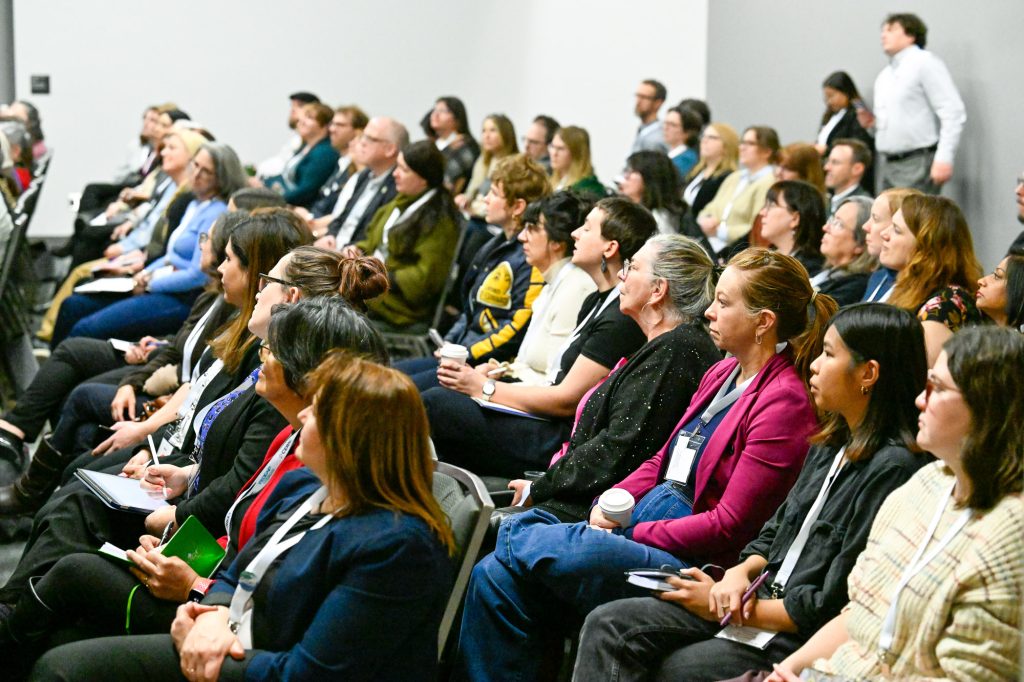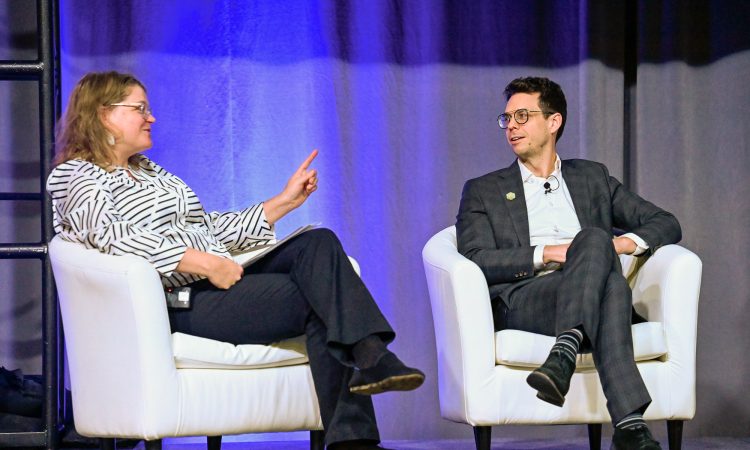|
Getting your Trinity Audio player ready...
|
The world of work is evolving rapidly, shaped by technological advancements, economic shifts and changing workforce demands. In an era of uncertainty, understanding labour market information (LMI) is more important than ever. At Cannexus25, Canada’s largest career development and workforce innovation conference, the Future Skills Centre (FSC) led an insightful discussion on leveraging LMI for career mapping, training and upskilling decisions. The conversation underscored the role of LMI in helping individuals, educators, employers and policymakers navigate the complexities of the labour market.
🎙️ For a deeper dive into these discussions, tune in to Episode 7 of the Future Skills Podcast, recorded live at Cannexus25. Listen now on the FSC website or anywhere you get your podcasts.
What is labour market information?
LMI encompasses all data and insights related to jobs, industries, skills and workforce trends. It includes employment rates, wage patterns, regional job availability and forecasts on how factors like automation and sustainability will reshape employment landscapes.
For researchers and economists, LMI serves as a critical tool to assess economic health and identify opportunities and challenges. For example, if data reveals a decline in certain manufacturing jobs due to automation, policymakers and training providers can design programs to help workers transition into emerging fields such as technology or renewable energy. However, making LMI accessible and practical for everyday users – whether jobseekers, students or career professionals – is just as vital as collecting and analyzing the data.

The role of LMI in career development
Labour market information is not just numbers on a page – it tells the story of job opportunities, skill demands and economic shifts. Engaging communities in discussions about job trends and aligning LMI with real-world needs is essential. Whether it’s a student exploring career paths or a mid-career professional looking for a transition, LMI provides a roadmap for informed decision making.
One key takeaway from the discussion at Cannexus25 was the importance of making LMI relatable and user-friendly. People want to know about job prospects in their own communities, and it’s crucial to present this information in a way that meets them where they are. Simplifying complex industry taxonomies and economic theories into practical, understandable insights can empower individuals to take action based on data-driven career strategies.
“Labour market information is not just numbers on a page – it tells the story of job opportunities, skill demands and economic shifts.”
The impact of AI and automation on jobs
One of the most significant disruptors in today’s labour market is artificial intelligence (AI). While AI has the potential to enhance productivity and create efficiencies, it also brings uncertainty regarding job security, particularly in traditionally stable, white-collar professions. Unlike past technological revolutions that primarily affected manual labour, AI is reshaping knowledge-based jobs, requiring workers to adapt to new roles and skills.
Rather than eliminating jobs outright, AI is expected to augment tasks within existing roles. This means employees will need to develop new competencies, particularly in areas like critical thinking, data literacy and adaptability. Understanding these shifts through LMI can help individuals and organizations stay ahead of the curve and prepare for future workforce demands.

Leveraging LMI for career transitions
To help Canadians make informed career decisions, tools like OpportuNext – developed by the Conference Board of Canada in partnership with FSC – are playing a crucial role. OpportuNext uses LMI to help individuals explore career pathways by matching skillsets with emerging job opportunities. Since its launch in 2021, it has been continually refined to better serve career development professionals and jobseekers alike.
By identifying transferable skills and alternative career options, OpportuNext provides a practical approach to navigating career transitions. Whether for young professionals entering the workforce or experienced workers seeking a new direction, tools like these ensure that LMI is not just theoretical but actionable.
The future of work and skills in Canada
The conversation at Cannexus25 reaffirmed that labour market information is a foundational element in building a resilient workforce. FSC is committed to harnessing LMI to equip Canadians with the knowledge they need to succeed in an evolving job market. As industries transform and new challenges arise, data-driven insights will continue to shape education, training and workforce development initiatives.
By making LMI accessible, relevant and actionable, we can ensure that workers, educators and policymakers are well-equipped to navigate the future of work with confidence.




